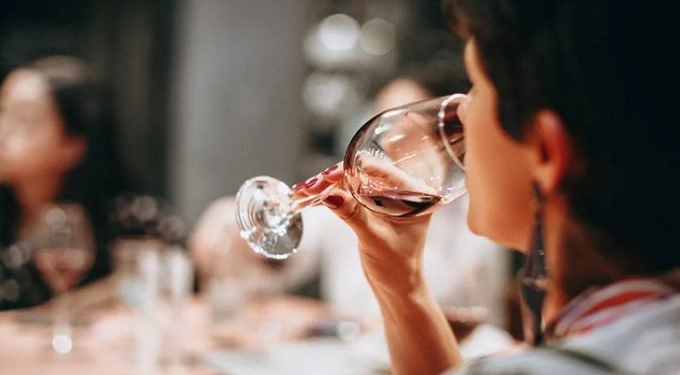
By Julia Ries | Healthline
- Alcohol activates the GABA system causing us to feel less anxious and relaxed. If you stop drinking, your GABA system is still overcompensating and gets mixed up, leading to a spike in anxiety.
- Drinking can also impact your ability to get REM sleep, which can affect mood.
- Alcohol can help trigger a chemical that impacts the “flight or flight” response leading to anxiety
For many people, drinking and the holidays go hand in hand.
Between the work parties, festive get-togethers, and influx of family members, there are plenty of opportunities to get caught up in a whirlwind of drinking.
In fact, the stretch before Christmas leading through New Year's Day accounts for more binge drinking episodes than any other point in the year, according to the American Addiction Centers.
And all the alcohol-infused cheer going around often comes with a painful aftershock.
Yes, there are the standard hangover symptoms — pounding headaches, bouts of nausea, and an uncompromisable need for total silence — but many people also experience heightened levels of anxiety, a term the internet has dubbed “hangxiety.”
So, in light of the upcoming holidays — and, therefore, all the champagne and spiked eggnog you're about to serve up — we wanted to get to the bottom of why drinking can give us more anxiety in the days that follow.
It Messes With Our GABA System
The mood fluctuations we feel after a couple of days or even a night of excessive drinking can be traced back to gamma aminobutyric acid (GABA), an inhibitory neurotransmitter in the brain.
Alcohol activates the GABA system (which, remember, is inhibitory), causing us to feel less anxious and relaxed (if you drink, you know the feeling).
“By activating an inhibitory neuron, [alcohol] makes you uncoordinated, it makes you disinhibited — so you're a little more talkative — and that happens immediately,” said Dr. Stephen Holt, a Yale Medicine addiction medicine doctor.
However, if you drink multiple days in a row, and therefore activate the GABA system for an extended period of time, the GABA system starts to cool itself down.
“Your brain starts to say, ‘Oh! There's this whole new thing in our brain now, we should make some changes,'” Holt said.
When you eventually stop drinking, your GABA system is still overcompensating and gets mixed up, leading to a spike in anxiety.
“When you take alcohol out of the system — it's four days of binge drinking and now you're not drinking alcohol — that [GABA] system is now revved up in such a way that you start to feel anxious if you don't have alcohol in your system,” Holt said.
On top of that, alcohol releases a surge of endorphins — our bodies' natural opiate — which gives us a feel-good buzz.
When we drink for days in a row, our brain starts to expect this pleasurable substance all the time. And, without it, we can start to feel a bit blue.
“We use the term dysphoria, which is kind of the opposite of euphoria,” said Holt. “It's just this feeling of emptiness and feeling a little hollow — there's just something missing — because that alcohol was providing this pleasurable, reinforcing effect.”
Alcohol Can Also Be Stimulating
Alcohol can also be stimulating, according to Dr. John Krystal, the chair of the department of psychiatry at Yale Medicine.
Some people may find that a glass of wine or beer will cause them to feel more stimulated. Krystal says this may be due to alcohol's ability to increase norepinephrine levels in the body, which is a chemical involved in our body's “fight or flight” response to fear or stress.















